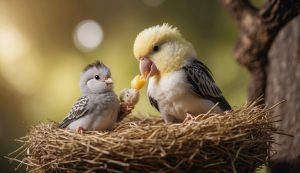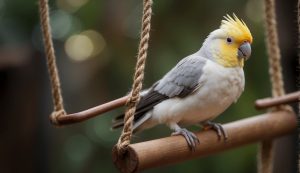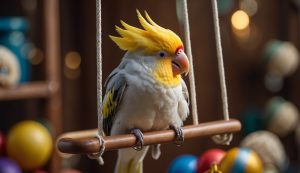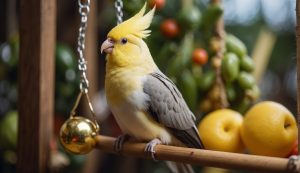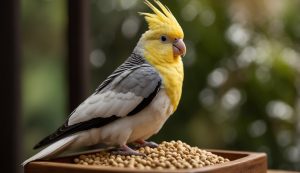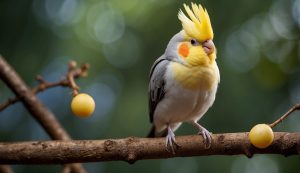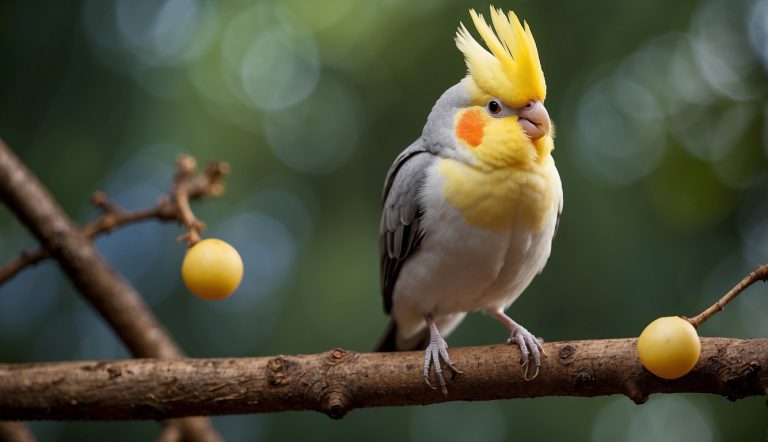Do Cockatiels Smell? Everything You Need to Know

If you’re considering getting a cockatiel, you might be wondering if they have an odor. After all, birds are known to produce a lot of dust, and some species can be quite smelly. So, do cockatiels smell?
The Short Answer…
The short answer is no, cockatiels don’t have a strong odor. In fact, many owners report that their cockatiels have a pleasant, slightly sweet smell. This is because cockatiels are very clean birds that groom themselves regularly. They also produce very little dust, which can be a concern with other bird species.
But it’s important to note that cockatiels do produce droppings, which can have a slight odor if not cleaned regularly.
Table of Contents
Do Cockatiels Smell?
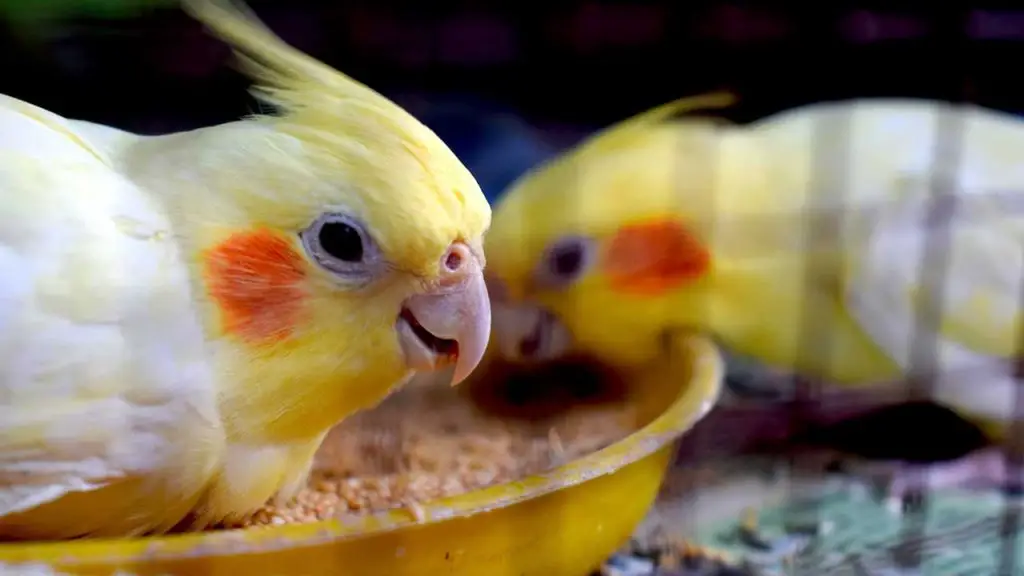
If you’re considering getting a cockatiel as a pet, you may be wondering if these birds have a strong odor. The answer is yes, but it’s important to note that not all cockatiels smell the same, and the strength of the odor can vary depending on various factors.
What Causes Cockatiel Odor?
Cockatiels have a natural scent that comes from the oils on their feathers and skin. Additionally, their droppings and food can contribute to the odor in their cage. If their cage is not cleaned regularly, the smell can become stronger.
How Sensitive is a Cockatiel’s Sense of Smell?
Cockatiels have a relatively weak sense of smell compared to other birds. However, they can still detect odors and may be sensitive to strong smells such as vinegar or strong cleaning products.
How to Keep Your Cockatiel’s Cage Fresh and Clean
Maintaining good hygiene is essential to keeping your cockatiel’s cage fresh and odor-free. Here are some tips:
- Clean the cage regularly: Remove droppings and uneaten food daily, and deep-clean the cage at least once a week.
- Use natural cleaning products: Avoid using harsh chemicals and opt for natural cleaning products such as vinegar and water.
- Provide fresh food and water: Change your cockatiel’s food and water regularly to prevent spoilage and odor.
- Use odor-neutralizing products: You can use products such as activated charcoal or baking soda to absorb odors in the cage.
In addition to keeping the cage clean, your cockatiel’s diet can also affect their scent. Feeding your bird a balanced diet of fruits, vegetables, and high-quality pellets can help keep their scent fresh and pleasant.
Overall, while cockatiels do have a natural odor, it’s possible to keep their cage fresh and clean with proper hygiene and diet. By taking good care of your pet, you can ensure that they are healthy and happy.
Cockatiel Hygiene

Cockatiels are generally clean birds and do not have a strong odor. However, proper hygiene is important to maintain their health and well-being. In this section, we will discuss some important aspects of cockatiel hygiene.
Bathing Your Cockatiel
Bathing is essential for maintaining your cockatiel’s skin and feathers. You can provide a shallow dish of water for your bird to bathe in. Alternatively, you can mist your bird with water using a spray bottle. Cockatiels enjoy bathing and will often preen themselves after a bath.
Cleaning Your Cockatiel’s Skin and Feathers
Regular cleaning of your cockatiel’s skin and feathers is important to remove dirt and debris. You can use a damp cloth or a gentle bird shampoo to clean your bird’s skin and feathers. Avoid using soap or other harsh chemicals as they can be harmful to your bird.
Regular Cleaning of Your Cockatiel’s Cage
Regular cleaning of your cockatiel’s cage is important to maintain a clean and healthy environment. You should remove any uneaten food, droppings, and toys from the cage daily. You can use a bird-safe disinfectant to clean the cage once a week. Avoid using air fresheners or other strong-smelling products near your bird’s cage as they can be harmful to your bird’s respiratory system.
It is important to note that the bacteria present in your bird’s droppings can be harmful to humans. Therefore, it is important to wash your hands thoroughly after handling your bird or cleaning its cage.
In conclusion, proper hygiene is essential for maintaining your cockatiel’s health and well-being. Regular bathing, cleaning of the skin and feathers, and cleaning of the cage are important aspects of cockatiel hygiene. By following these simple steps, you can ensure that your bird stays healthy and happy.
Cockatiel Diet and Health
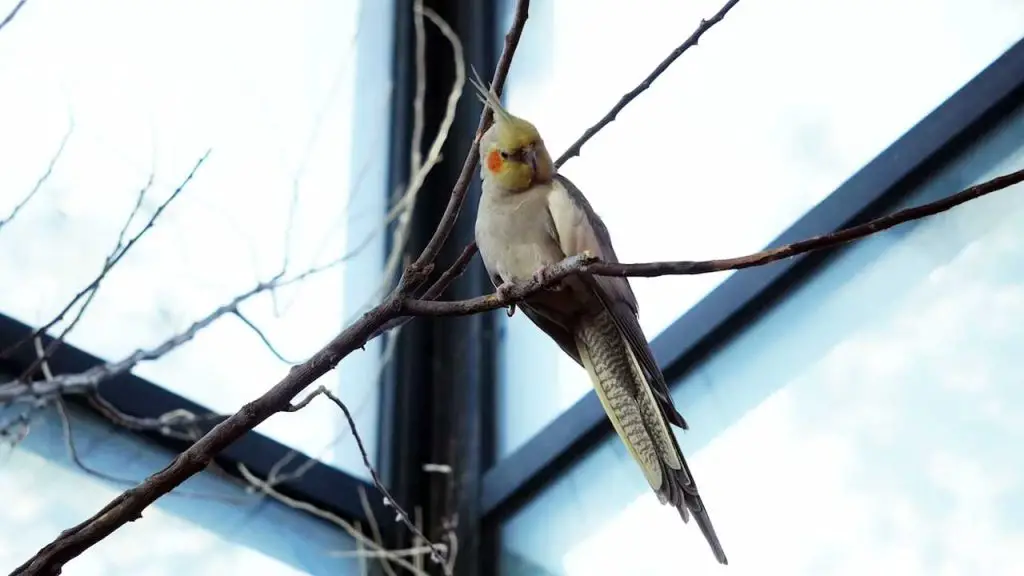
The Importance of a Healthy Diet
As a responsible cockatiel owner, it is essential to ensure that your feathered friend is receiving a balanced and nutritious diet. A healthy diet is crucial for the overall well-being of your cockatiel. A diet that is deficient in essential vitamins and minerals can lead to various health problems, including a weakened immune system, poor feather quality, and a shorter lifespan.
Cockatiels require a diet that is high in protein, fiber, and vitamins. A healthy diet should consist of fresh fruits and vegetables, high-quality pellets, and occasional treats. Avoid feeding your cockatiel foods that are high in fat, salt, and sugar, as they can lead to obesity and other health problems.
How Diet Affects Cockatiel Smell
Cockatiels that are fed a healthy and balanced diet are less likely to have a foul smell. A poor diet can lead to digestive problems, which can result in a strong and unpleasant odor. Additionally, feeding your cockatiel foods that have a strong odor, such as garlic and onions, can also contribute to a foul smell.
How to Keep Your Cockatiel Healthy
Maintaining a clean and hygienic environment is essential to keep your cockatiel healthy. Regularly clean your cockatiel’s cage, food, and water dishes, perches, and toys. Use white vinegar or baking soda to clean the cage and accessories, as they are safe and effective cleaning agents.
Ensure that your cockatiel has access to clean and fresh water at all times. Dirty water can lead to bacterial infections and other health problems. Additionally, monitor your cockatiel’s droppings for any signs of illness or poor digestion.
If you notice any changes in your cockatiel’s behavior or smell, it may be a sign of an underlying health issue. Consult with an avian veterinarian who can diagnose and treat any health problems your cockatiel may have.
To Sum Up
To sum up, a healthy diet and a clean environment are essential for the well-being of your cockatiel. By providing your feathered friend with a balanced and nutritious diet and maintaining a clean and hygienic environment, you can ensure that your cockatiel lives a long and happy life.

